According to the committee, school drop outs and rote learning are the two major problems confronting the middle level school education. While the former is real, the latter, is NOT a problem at all. In fact, we should be happy that the practice of memorizing still exists.
It is the imported thought and utterly false reasoning to call memorizing, a rote exercise. It is no doubt a primitive way of learning. Yet, there has never been a better method of inculcating the most fundamental and most precious parts of the education into the minds of the children.
From time immemorial, It has been the advice of the ‘Guru’ to the beginners that they must memorise certain lines, tables, rules and formulas so that they would find it much easier at a later stage when they try applying them to various problems or situations.

Moreover, memorising, or, the so called ‘rote learning’ is the best proven way of improving one’s power of concentration and also a sense of purpose in reading something. Let us consider another situation where the students need not know anything by heart; it is enough he /she has read it; knows about it. Where is the element of ‘retention’? It is more like reading a journal or magazine with no necessity to remember anything deeply.
We have seen and experienced ourselves that the system of memorizing or the so called ‘rote learning’ has done more good than bad in the long run. There are a lot of portions in the study that are too great for life but too difficult to understand or comprehend at the early years of education. These are the ones that have to be memorized and ‘kept in store’ for the future.
This is how we learnt ‘ThirukkuraL’ that meant nothing great when we read it first time in early schooldays. But over a period of time, as the years roll by, as we gain experience, we now understand so many things from the very same couplet. We realise that what we knew by heart then are touching the heart now leaving a huge impact on our character leading to a far better well-being today.
The system that does away with the memorising part would drive the students to refer to the text every time it is applied. Does it make any sense? This ‘blame’ on the memorising practice is being propagated by the so called ‘progressive’ thinkers. They are known to blindly oppose anything that comes of age; anything of our origin; anything that strengthens our cherished ideals and values. Should the committee play into their foul, inimical, ulterior game plan?
It would be too good if the committee withdraws all that it has said about the ‘rote’ learning and instead makes a complete study of the benefits of the memory system in the school education. If the purpose of the committee is really to find ways of improving the overall standards of education, the focus should have been more on what is being taught rather than how it is being learnt.
We should make a strong statement that memorising be made an integral part of education and that the first few years of foundational level education, as the committee calls it, should be devoted more towards it. This is the seed, the root, the base and as the committee would love to call it, the foundation. Should it not be strongly ‘planted’? Can we allow it to be too weak and too fragile never to be in one’s heart at all?
All the moral and ethical values leading one to a great life are but the results of what were ‘imbibed’ in school days. The learned members of the committee may kindly ‘revisit’ their report and make suitable amendments and appropriate recommendations to facilitate ‘quality’ education in schools.
‘Reintegrating dropouts and ensuring universal access to education’ declares an objective of ‘achieving access and participation in free and compulsory quality school education for all children in the age group of 3- 18 years by 2030’. The report says that ‘India has made remarkable strides in recent years in attaining near-universal enrolment in primary school: according to U-DISE data, the Gross Enrolment Ratio (GER)in 2016-17for Grades 1-5 was at 95.1% However, the data for later grades indicates some serious issues in retaining children in the schooling system. The GER for Grades6-8 was 90.7%while for Grades 9-10 and 11-12 it was only79.3% and 51.3% respectively indicating that a significant proportion of enrolled students begin to drop out after Grade5 and especially after Grade 8. In absolute numbers, an estimated 6.2 crore children of school age (between 6 and 18 years) were out of school in 2015.’
The figures clearly show that the situation is alarming indeed. But there is something that is not given in the statistical data of the report which would have made a more compelling read – i.e. about the number of students who dropped out DURING the course of an academic year.
The report talks about the percentage of drop outs for various Grades. What we need to know is the number of students who came to the school at the beginning of the year but subsequently stopped either in the first or the second or the third quarter of the year. It makes a big difference between a student dropping out in the first quarter and the third quarter. Is it not important then to have this data? Did the committee ever try to collect this piece of information? Without this, how can the study on drop outs be complete?
The first quarter drop out might be the result of a natural disinterest of the student towards education while for the third quarter drop out, it would be more with the attitude of the individual teachers or the teaching methodology or the ‘environment’ or any other reason that has ‘killed’ the learning desire of the student. This otherwise is a failure of the system meaning a certain disservice to the child resulting in his / her discontinuation of formal education.
The latter problem calls for a closer examination and demands a stricter monitoring system whereby the erring teachers / officials are reprimanded or punished then and there. Without this being done, how the dropped out children, in the event of being brought back, would stay in the system that is abysmally hostile to the child learners?
In our experience we know that the ‘atmosphere’ and the attitude in the schools at the primary level are not so encouraging to keep the children stayed with interest and enthusiasm in learning new things.
Ignoring this all important aspect, the committee offers many suggestions to address the issue of drop outs. Will they really work?
(to continue…
Baskaran Krishnamurthy
Mail: [email protected]




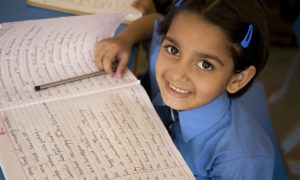





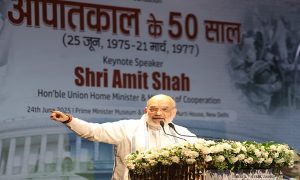

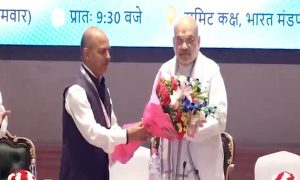

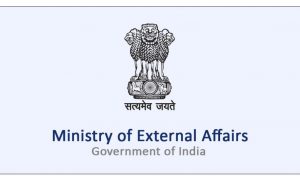

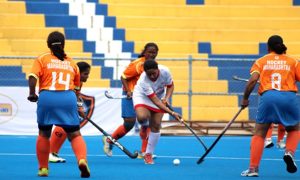











 WhatsApp us
WhatsApp us